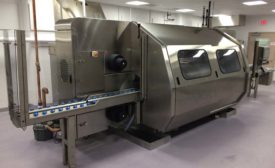Cornell University develops tool for controlling foodborne pathogens in food manufacturing facilities
The study focused on developing and testing a computer model that has the potential to pinpoint locations in a food manufacturing facility where Lm might be found.
Read More




